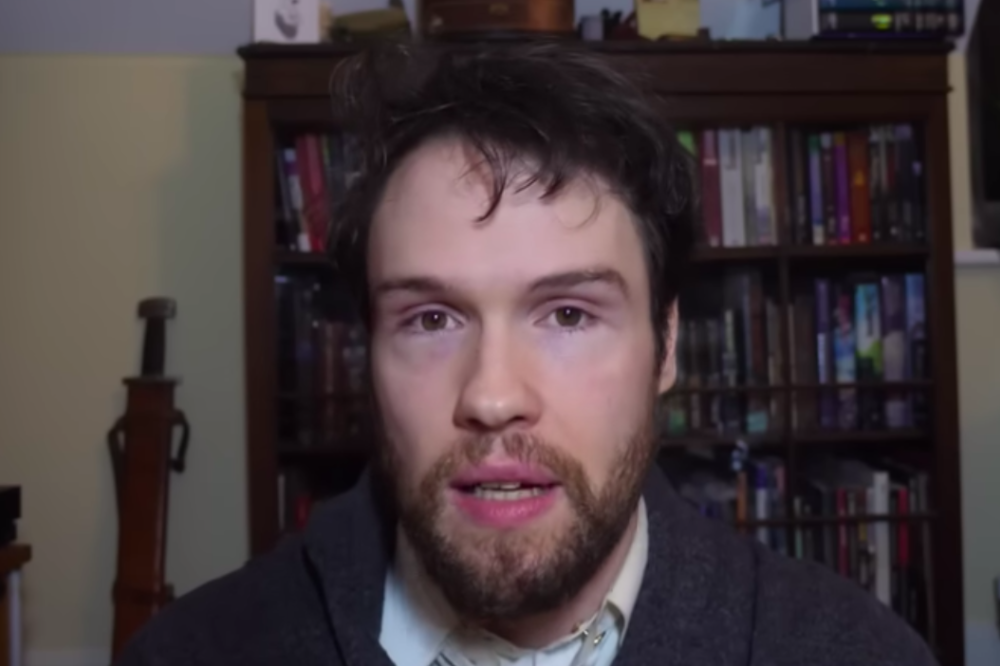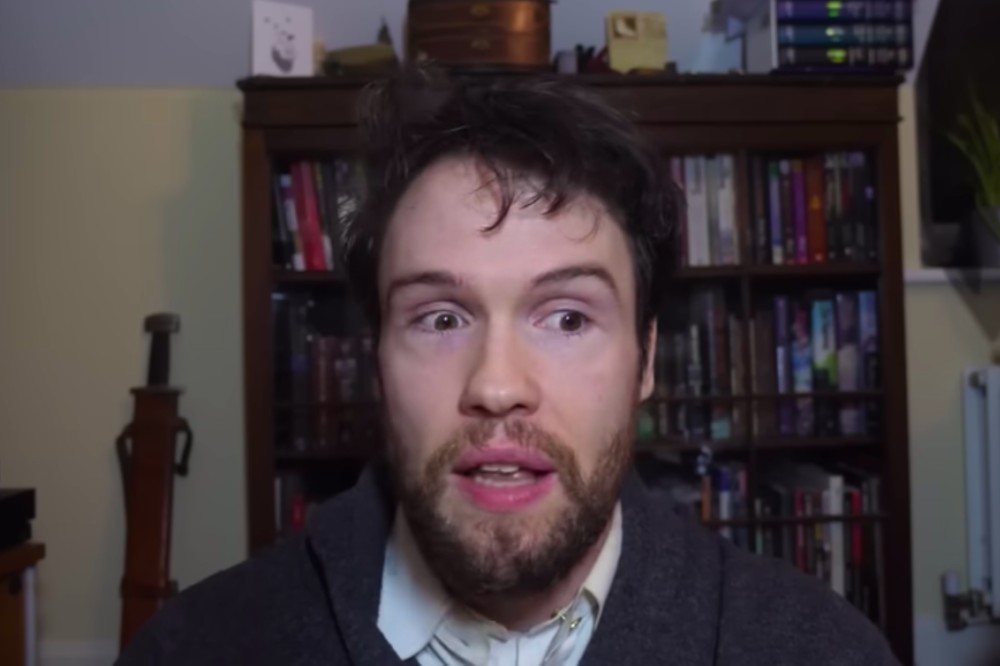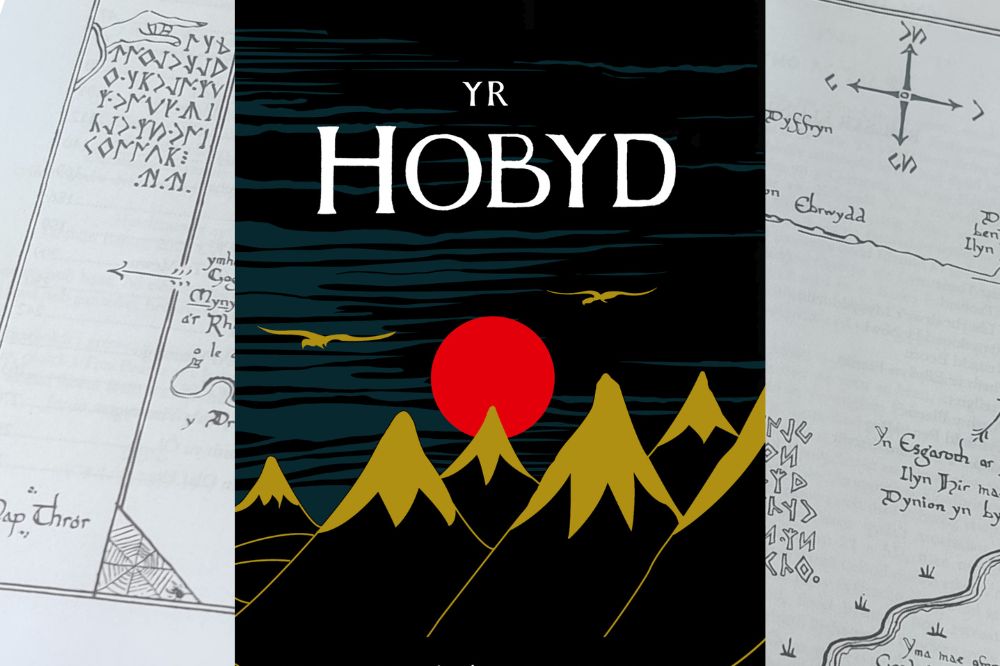Viral YouTube video asks ‘Is Romantasy killing Welsh culture?’

Stephen Price
A Welsh historian behind ‘The Welsh Viking’ platform has amassed tens of thousands of views on his latest YouTube video where he poses the question, ‘Is romantasy ruining Welsh culture?’
In the introduction to the sixteen minute video, Jimmy Johnson says: “Romantasy (or ‘romantic fantasy’ – go figure) has been all over the internet this month, especially over on TikTok, where BookTok has been debating whether the genre is ruining fantasy (it’s not).
“But a wider discussion has appeared too, asking if romantasy authors have a responsibility to be sensitive and aware of the real life cultures they’re borrowing from, be they Scottish, Irish, Gaelic, Welsh, Gaeilge, Manx, Breton, or otherwise.
“Well this Celt has opinions and thoughts, and he decided to stick some of them in a YouTube video to get them across.”
Debate
Jimmy Johnson, is a research archaeologist, and has over 90,000 subscribers to his YouTube channel alone.
Focusing on his passion for history and folklore, his online biography is brief, sharing: “Hi! I’m Jimmy. I’m Welsh, I do Viking age historical reenactment, and I’m a research archaeologist. That’s pretty much all you need to know!!”
His latest video was uploaded on 20 January, and has amassed over 40,000 views in under two days.
Jimmy shares: “I am a Welshman, internet Cymro and thought I’d better weigh in on Booktok and the debate around using Welsh culture wrong.”
Giving some background information about his usual videos and reenactments, he says that as a Cymro (a Welshman), he’s used to the standard misrepresentations of Wales and Welsh culture, with the usual cliches of “Welsh is difficult language and only has consonants” etc. before getting into the debate around the misuse of Welsh culture and folklore.
He says that the “furore” struck him two ways.
Firstly, he was “disappointed and annoyed that it’s happening”, asking, “How is it news to most Welsh people?”

He says the debate is not news to people from other Celtic countries because of the idea of “pan-Celticism”, which he explains is a “weird habit people have of lumping all of the Celtic cultures together”.
“They are all basically just the same thing,” according to some people, he says. Saying bluntly that “They’re not”.
He says: “It tires people out from these cultures.. because whenever I see a fantasy book that has elements of Irish or Welsh mythology… I generally go in assuming they’ve done it wrong.”
“Most of the time it’s lazy and it’s just tiring to see that” – and he compares it to getting someone’s name or gender wrong.
“It just tires you out.”
Tolkien
While many have got it wrong lately, Jimmy is quick to state his opinion that some writers have certainly created good work, using the example of works by Tolkien, where “it’s clear to Welsh speakers that it’s influenced by Welsh” conventions, before joking that many of the names used by Tolkien are on houses in Wales that are now AirBnBs.
He mentions Professor Dimitra Fimi from Glasgow University, where he was once affiliated, who brought the debate to national attention recently.
His ‘considered’ take or opinion is: “If you’re going to write a fantasy book with elements of Welsh culture or the Welsh language, or Welsh mythology.. be respectful of it.
“Be aware.. that Welsh mythology is very in depth.. it’s well over 1000 years old, it is intrinsically connected to a living language and culture.”

He states: “Wales is not a fantasy purely country land.. Wales is a place where there are council estates”
Listing things to be aware of, he says writers shouldn’t shoehorn Wales or ‘pan-Celticism’ into a book, as it’s going to be noticed. “Nobody likes to be misrepresented. It gives people a false image of us.”
Jimmy says that these ‘myths and legends’ are things he’s grown up with, they’re real places he went to as a child, and the poetic traditions are something he’s lucky enough to have learned about. But, he says, many children in Wales haven’t had that privilege. And people will read these books, he argues, and think that’s the norm for all in Wales.
Sensitivity read
Offering a solution, Jimmy calls for writers to do a ‘sensitivity read’ before publishing any work, and to use people like him who speak Welsh or are from Wales to read it and give their feedback.
‘A Court of Thorns and Roses‘ is used as an example, before he says: “We’re not one homogenous blob”.
“Irish people don’t use the Mari Lwyd.. We’re not all the same”
“Get somebody to read your novel.”
He adds that “whacking” Welsh names into a story will jar, and it’s nice to see names used, but not when misunderstood or used to make something “fantasy-ish”.
Pratchett knows how to use influence to make it his own, according to Jimmy. It’s inspired by Welsh storytelling and mythology, not just “nicked wholesale” which he says makes for lazy writing.
“You happen to have written a story that just uses Welsh names.. there’s more to it than that.”

His ‘hot take’ is simply to be respectful, saying that if you’re going to take a culture and storytelling tradition that’s been developing for 2,000 years, “show it some respect.”
“We’re always happy to see it represented, we’re not happy to see it misrepresented.”
Using the example of Highlanders and Outlander, or people painting their face green for ‘St Paddy’s Day’, or assuming all Celtic cultures mark Samhain, he stresses that it mustn’t be performative.
“My country is not a fantasy novel, my country is not a fantasy land,” he says. “Don’t try and make it one.”
Before the credits roll to the sound of Sosban Fach, Jimmy admits it’s taken three times and two and a half hours to film, but reiterates his call to ‘be respectful” – reminding anyone writing about Welsh culture to “get a sensitivity reading.”
“It is that easy.”
Support our Nation today
For the price of a cup of coffee a month you can help us create an independent, not-for-profit, national news service for the people of Wales, by the people of Wales.






Some people work really hard to get offended.
While others effortlessly trot out offensive nonsense
.. mostly Anglos when they are corrected ! Their supremacy pose is so fragile.
If not for Lady Charlotte Guest, Welsh legend would be less widely known even in Wales. So it has always been a fascination for outsiders (although she is perhaps an honarary insider). Iolo Morgannwg’s laudunum fueled creations were first given form at the first modern Eisteddfod which was held on Primose Hill in London.
I am more offended by spelling mistakes like the Australian use of Bronwyn rather than Bronwen as a girl’s name. Impossible to fix.
Or Welsh language parents raising their kids to speak English only as they do in what was the ‘fro’.